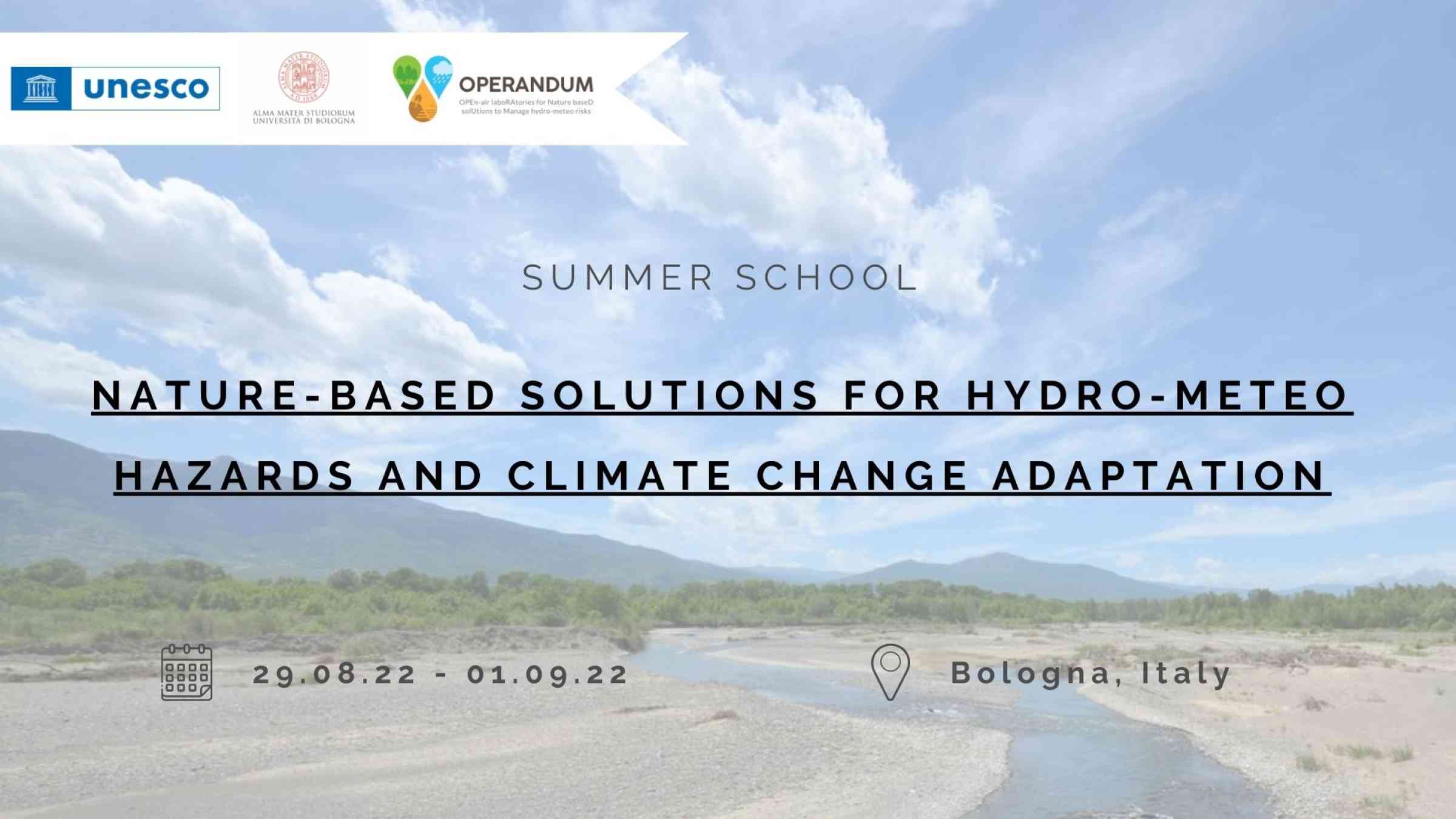Nature-based solutions for hydro-meteo hazards and climate change adaptation: International summer school

University of Bologna
- English
Background
OPERANDUM (OPEn-air laboRAtories for Nature baseD solUtions to Manage hydro-meteo risks) is an EU funded H2020 project that aims at delivering tools and methods for the demonstration and market uptake of Nature-Based Solutions to reduce hydro-meteorological risks. Nature-Based Solutions (NBS) are solutions to societal challenges that are inspired and supported by nature. These solutions provide environmental, social, and economic benefits and help build resilience by bringing natural features into cities and landscapes.
Within the OPERANDUM project, site-specific and innovative NBS are co-designed, co-developed, deployed, tested, and demonstrated with partners and local stakeholders in open-air laboratories. These open-air laboratories (OALs) are natural and rural Living Labs that cover a wide range of hazards with different climate projections, land use and socio-economic characteristics.
Course Purpose
The OPERANDUM summer school is organized by the University of Bologna’s Department of Physics and Astronomy and United Nations Educational, Scientific and Cultural Organization (UNESCO) together with OPERANDUM partners, including Finnish Meteorological Institute (FMI), KAJO Services, Natural Resources Institute Finland (Luke), Norwegian Geotechnical Institute, Rina-C, TU Delft and University of Glasgow.
It will demonstrate the potential of innovative NBS to mitigate the impact of various hydro-meteorological hazards in diverse rural settings. This summer school aims to provide PhD students and early career scientists with a knowledge base and rationale for the application of NBS to mitigate hydro-meteo risks.
Participants will explore the definition and classification of NBS, methodologies for monitoring and modeling of the intervention, methodologies for risk assessment in socio-ecological systems, and the process of co-creation. The training program will consist of field visits, lectures from recognized scientists and OPERANDUM partners, discussions with local stakeholders, and independent group work on a case study. In addition, participants will be introduced to one of the EU Open-Air Laboratory: The Volano Beach, Italy.
Learning Objectives
The overall learning objective of this course is to help participants gain a deeper understanding of nature-based solutions and enhance their practical skills and knowledge on hydro-meteorological hazards. Specific learning objectives of the summer school include:
- Understanding the rationale of NBS for hydro-meteorological hazards and their benefits
- Discussing drivers of hydro-meteorological risks in a changing climate
- Selecting potential NBS for specific hydro-meteorological hazards
- Becoming familiar with modeling and monitoring methodologies to assess the efficacy of NBS
- Identifying the key elements of the co-creation and replication of NBS (stakeholder engagement strategy, co-design and co-deployment process, dissemination, and replication activities)
- Working in interdisciplinary projects, addressing environmental topic using the socio-ecological approach
Course Methodology
The summer school will be held at the University of Bologna, Italy, from August 29th to September 1st, 2022.
Courses will be taught in English and are aimed at PhD level students and early career scientists.
No fees are required to register.
Registration
Interested participants are encouraged to submit an application form below:
For more information, you may also contact Mr. Paolo Ruggieri at paolo.ruggieri2@unibo.it and Mr. Francesco Barbano at francesco.barbano3@unibo.it.
For further details, please download the attached brochure.
Application deadline: August 4th, 2022. Results of the selection will be announced by mail in the week of August 8th, 2022.